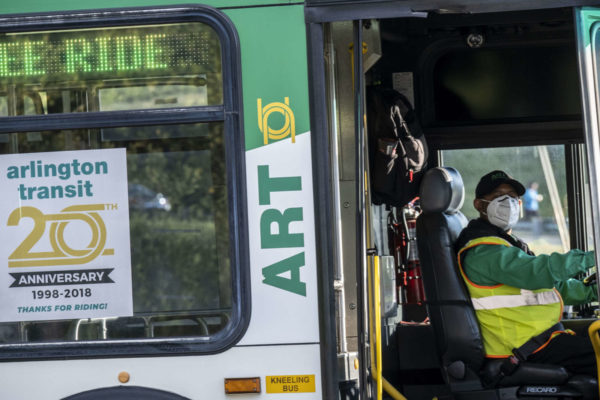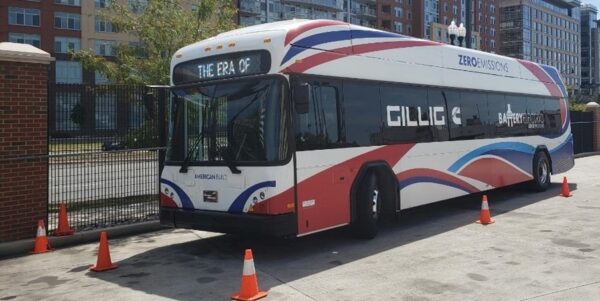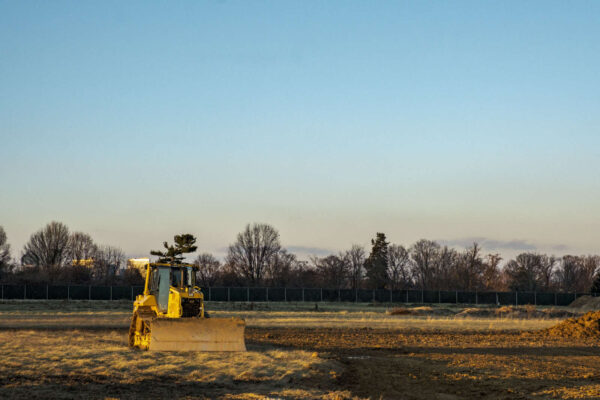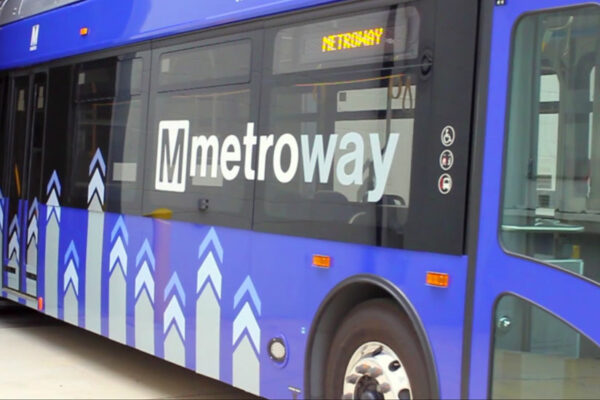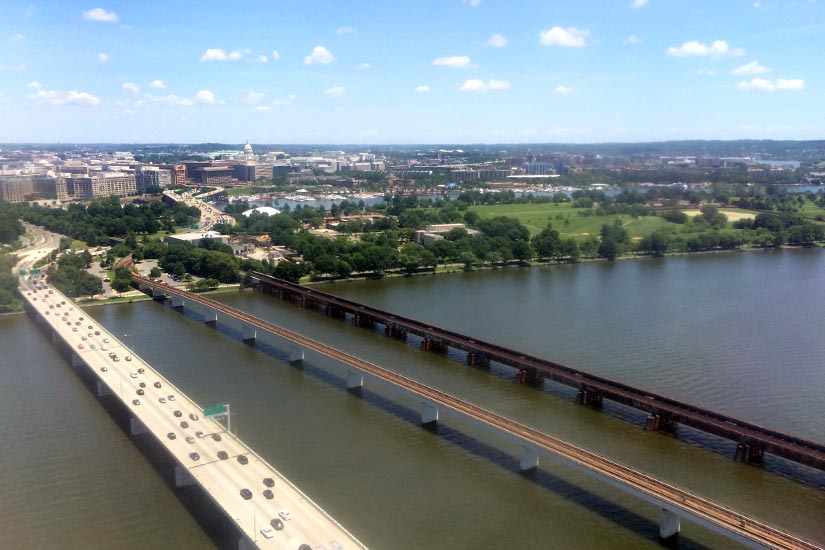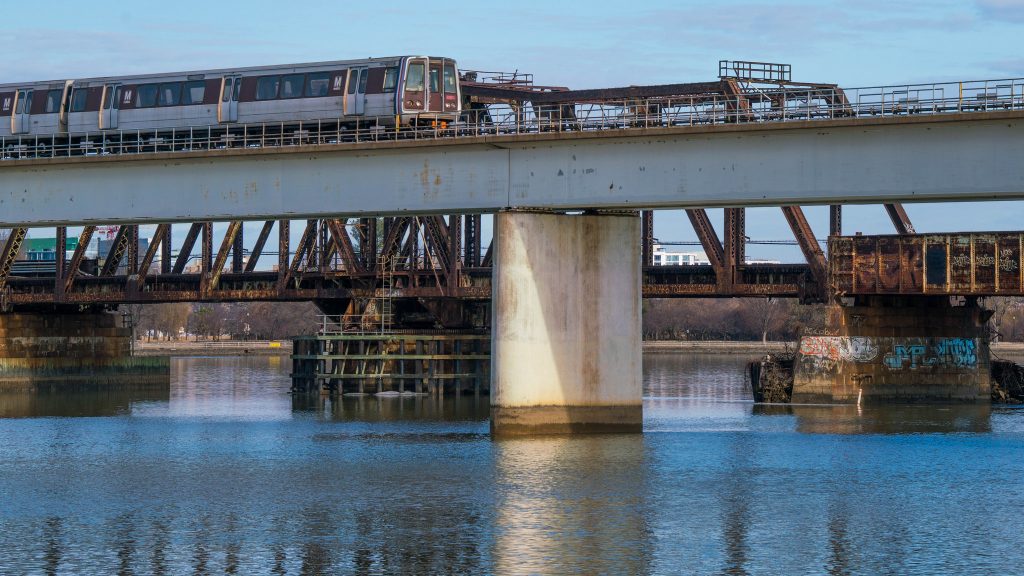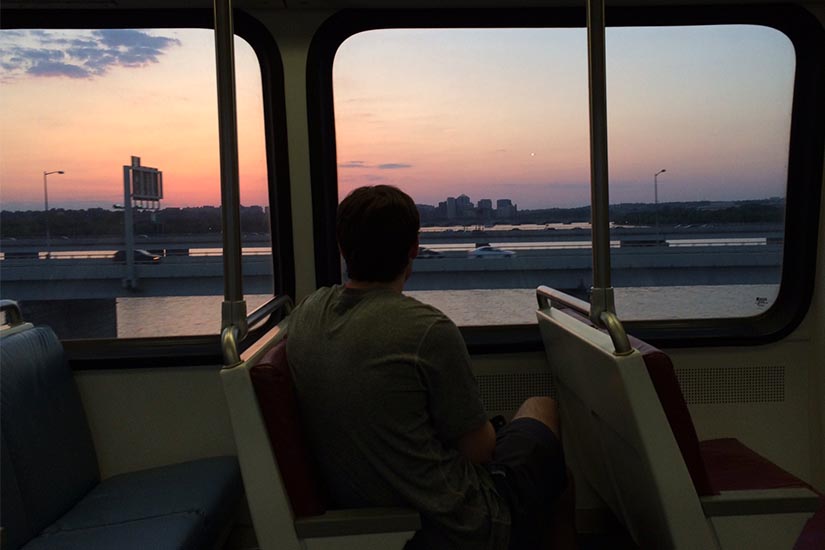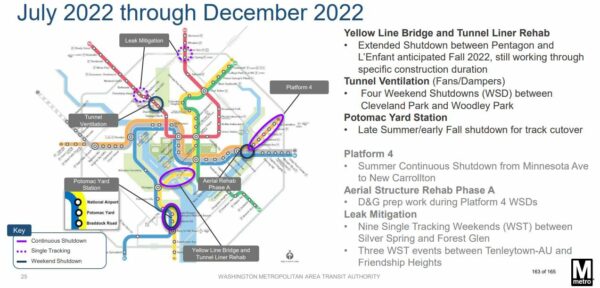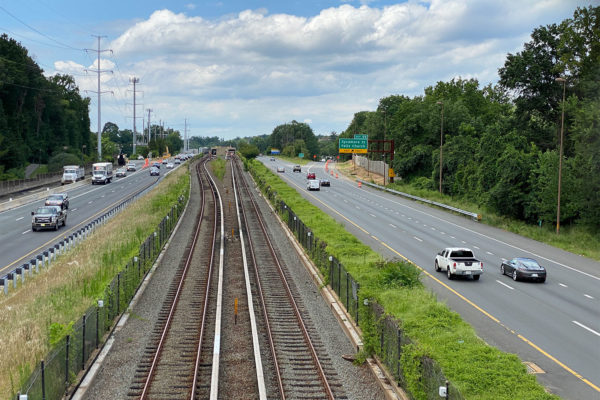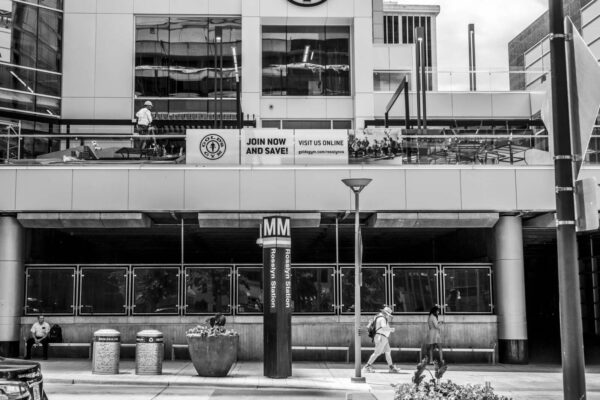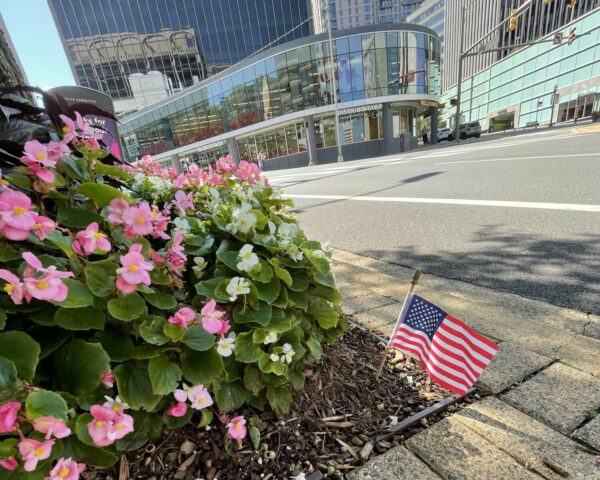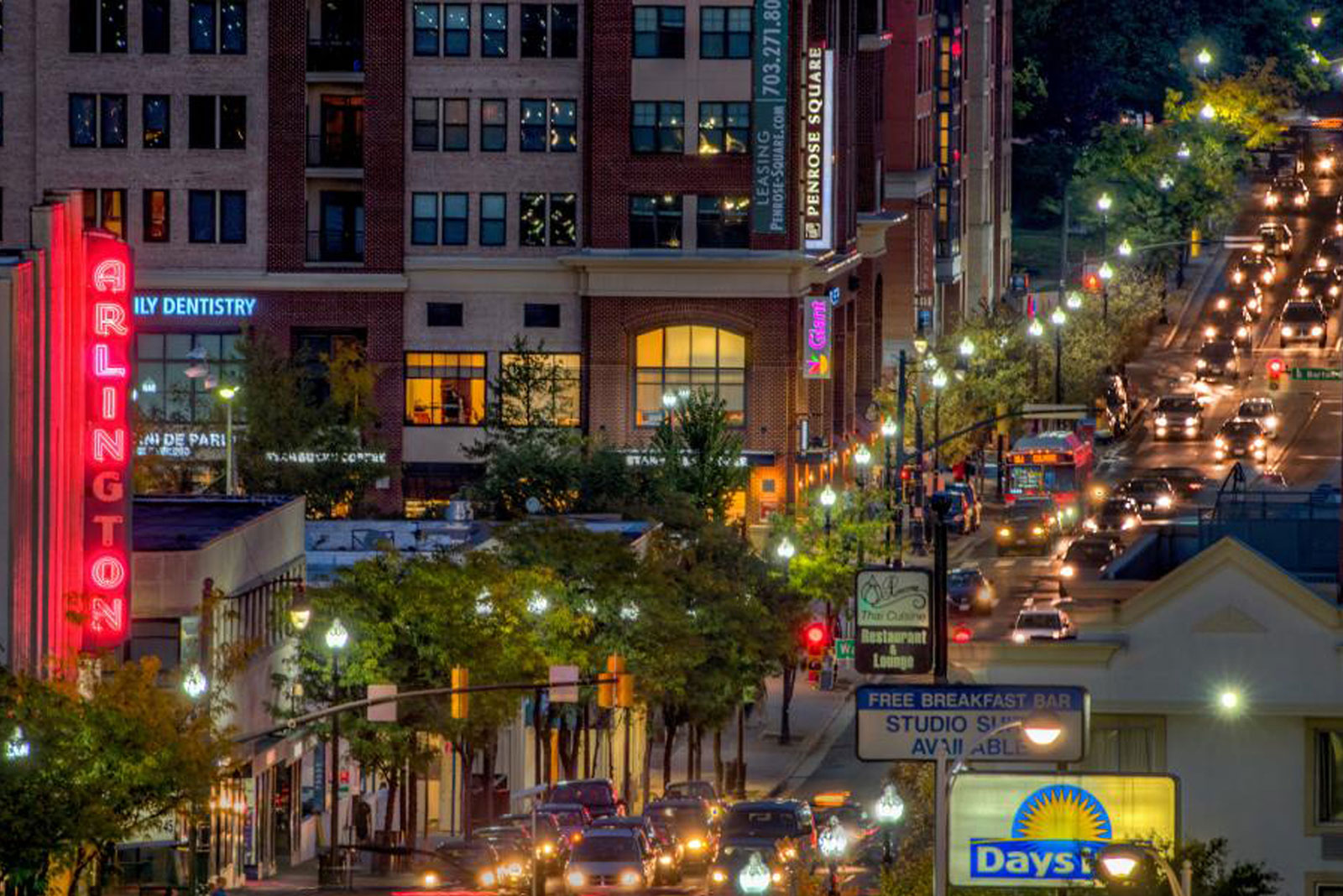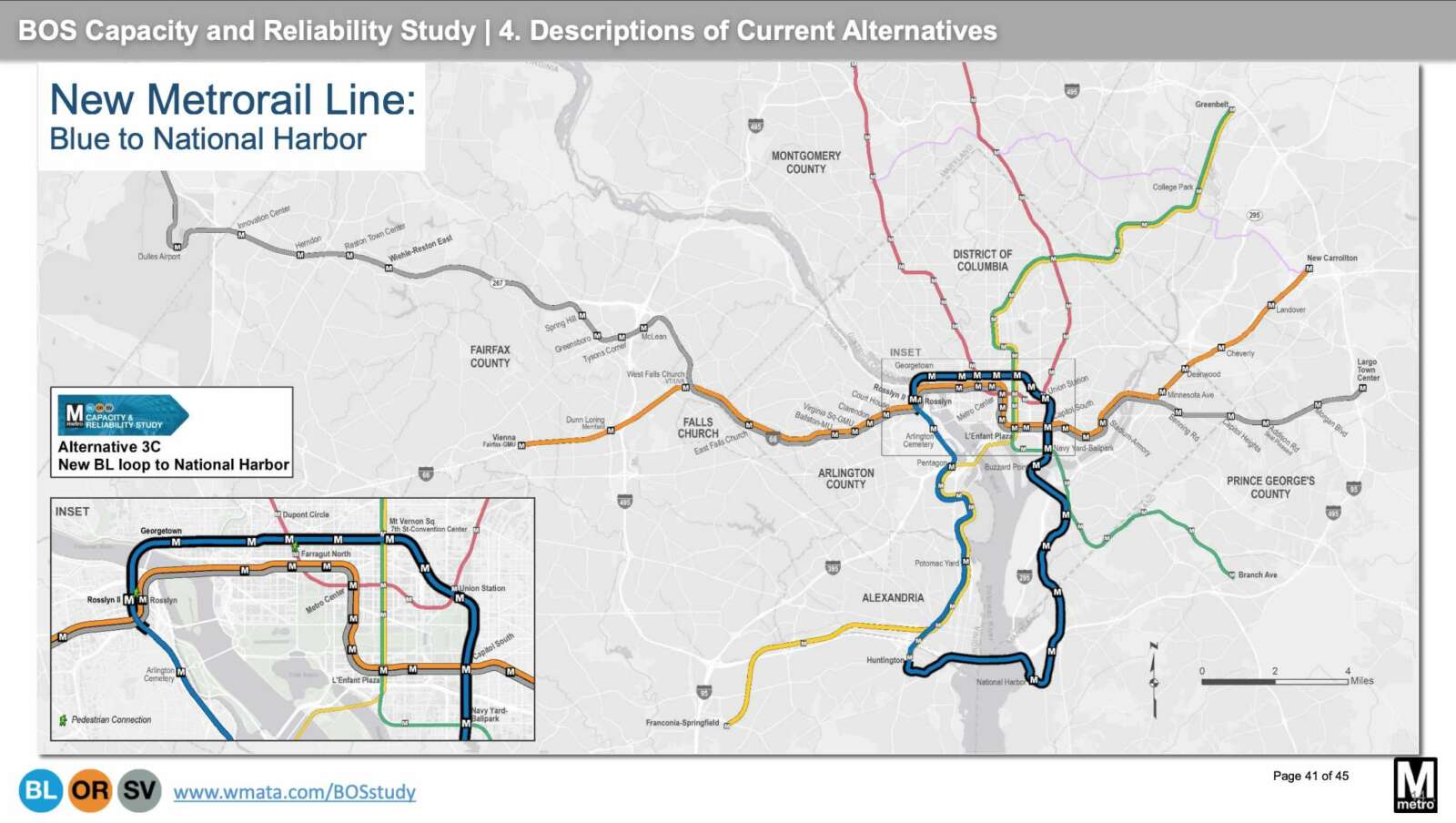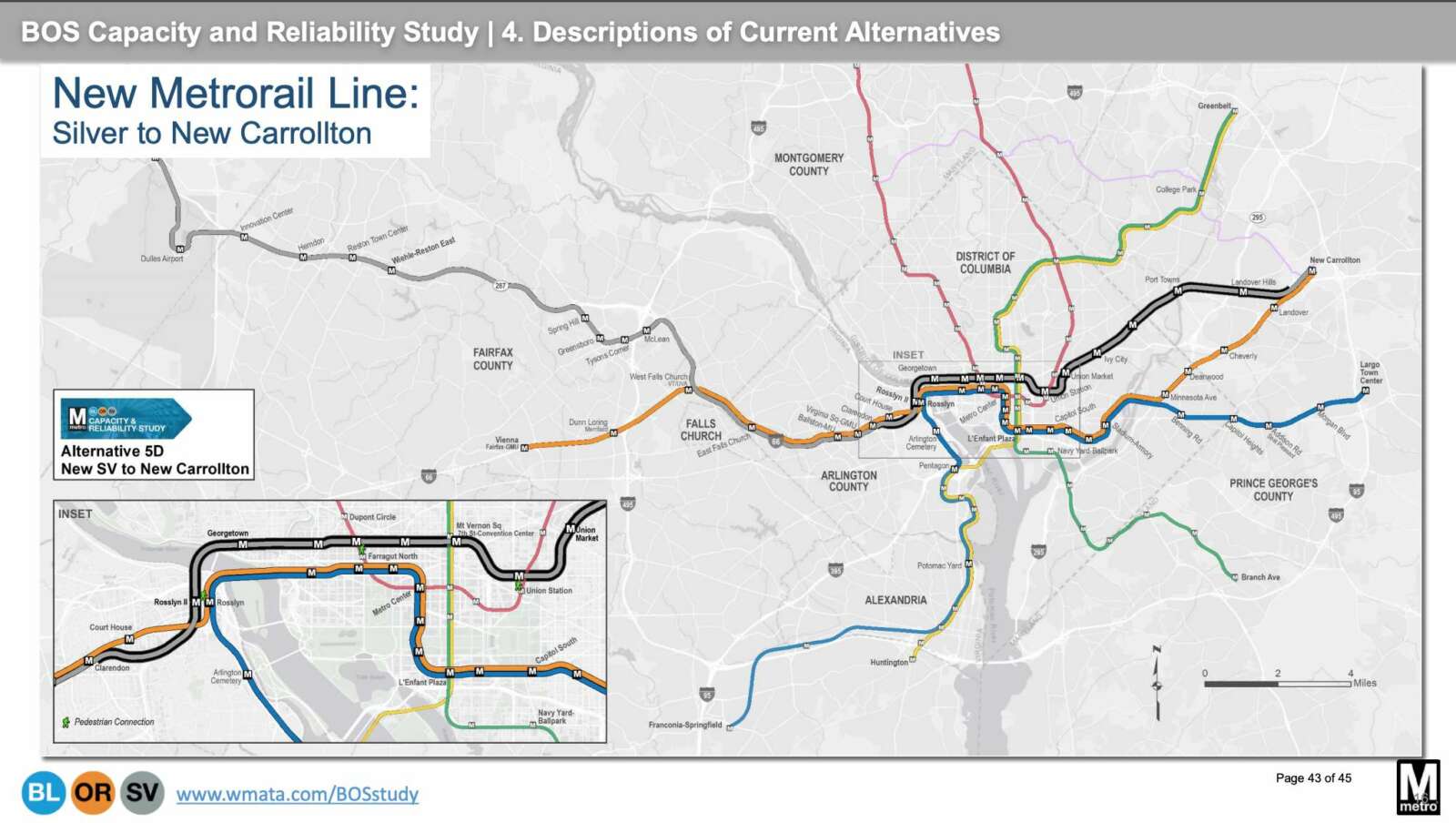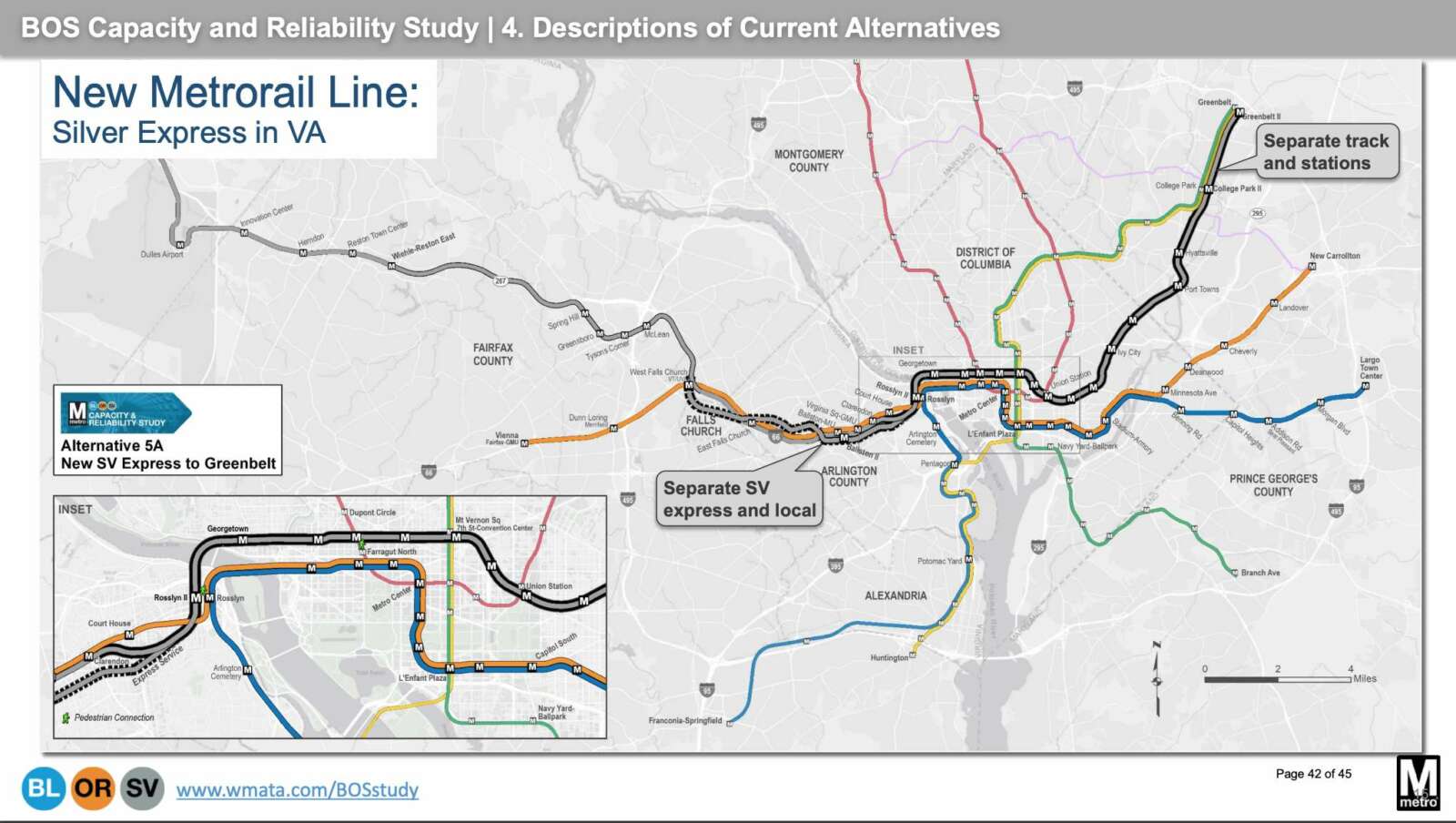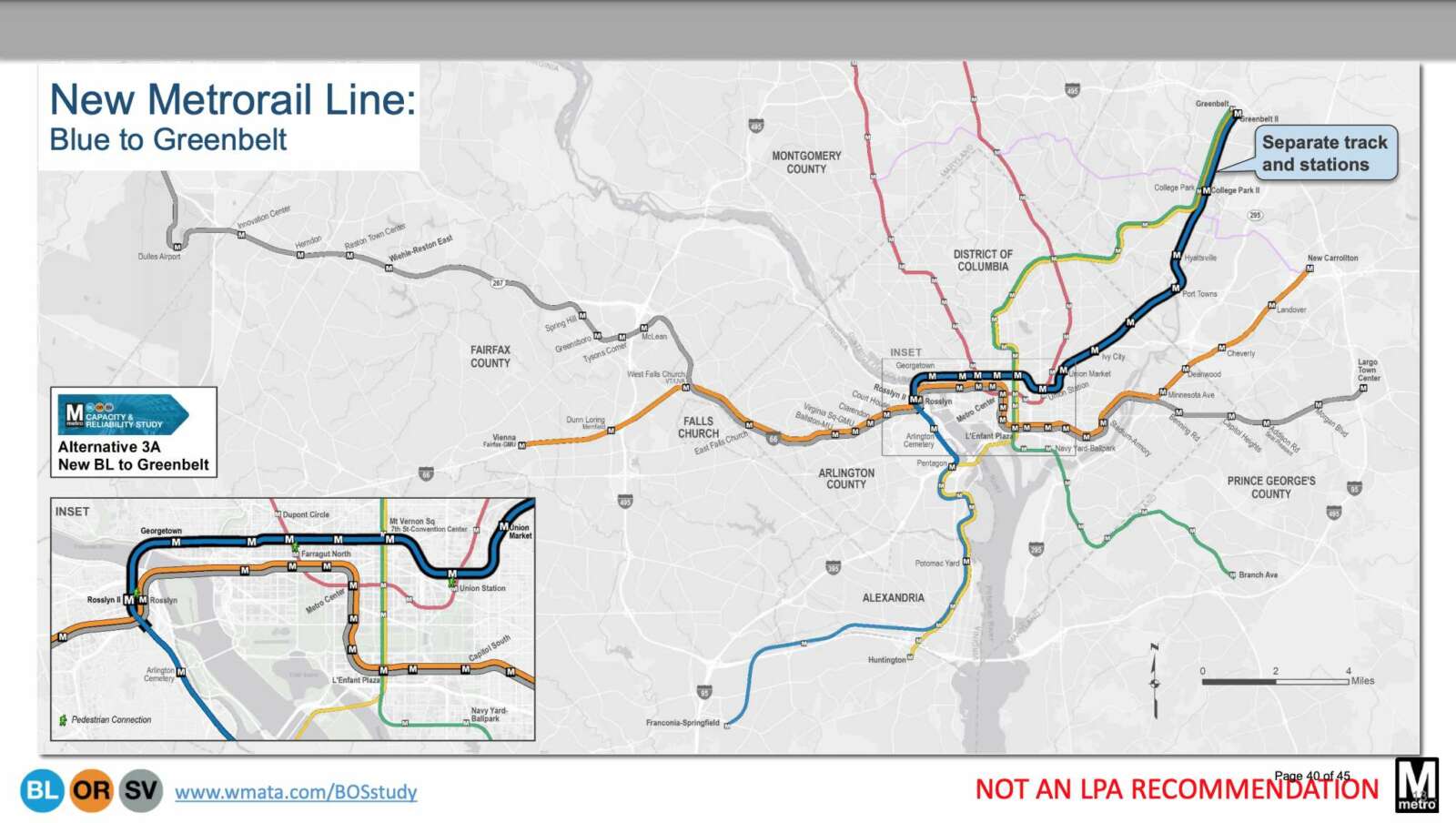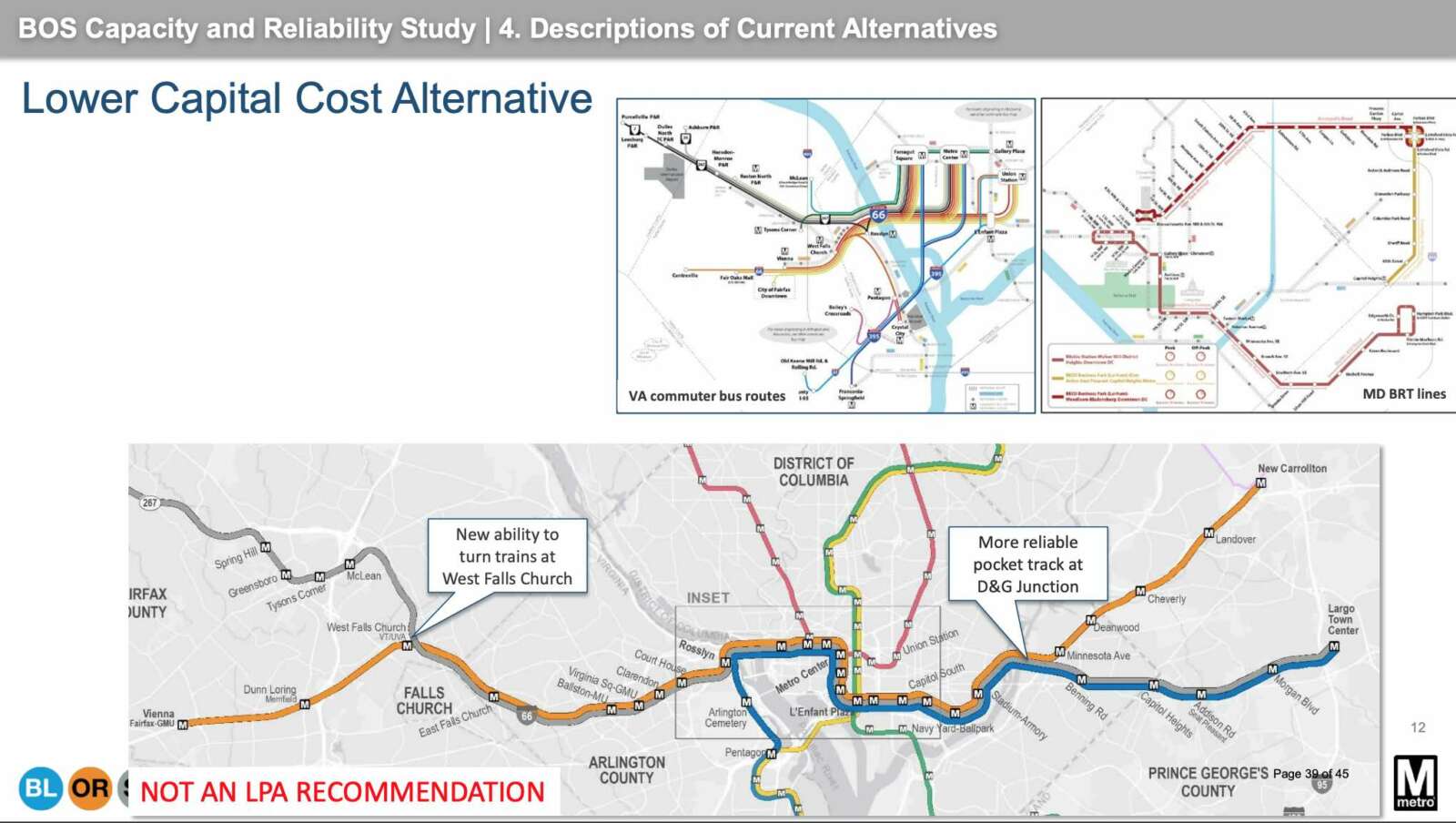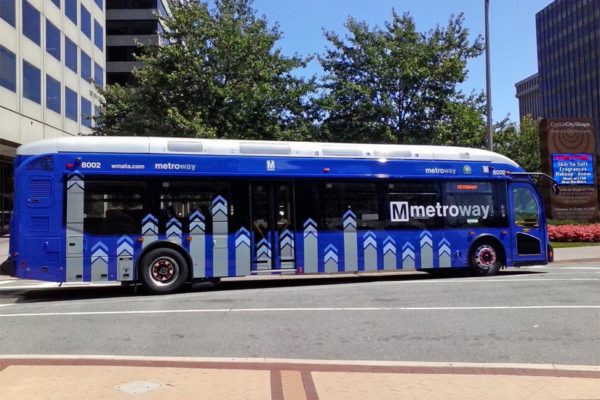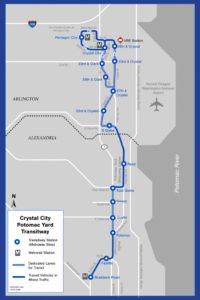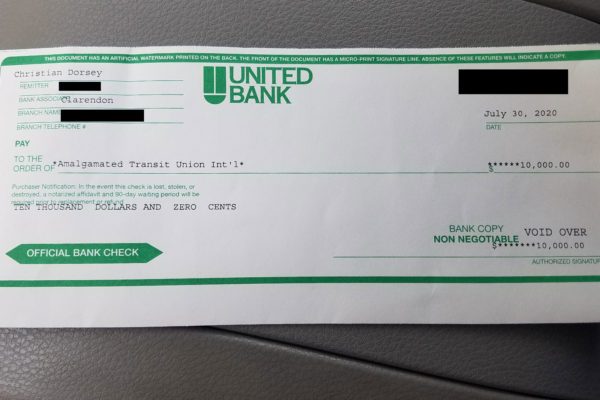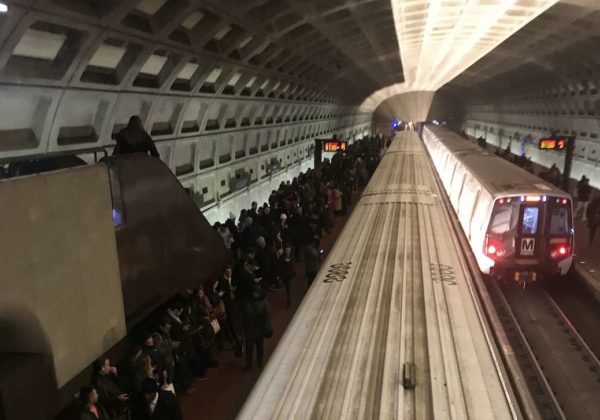
(Updated at 2:40 p.m.) The Ballston and East Falls Church Metro stations are among those set to be impacted by a multi-week closure starting in June.
WMATA recently announced that it is planning to shut down a significant portion of the Orange Line during the summer for “system maintenance and modernization.”
Two Arlington stations — Ballston and East Falls Church — will be impacted by the infrastructure projects. The current plan is that only trains going east, towards Virginia Square and D.C., will be available at the Ballston station from June 3 to June 26, while the East Falls Church station will be shuttered during that time period.
The rest of the Orange Line, from West Falls Church through the end of the line at Vienna, will be closed for a longer period of time, from June 3 to July 17.
Elsewhere, there will be ten days of single-tracking from Stadium-Armory to Cheverly stations on the Orange Line and a complete 44-day shutdown from July 22 to Sept. 4 on the Green Line from Fort Totten to Greenbelt.
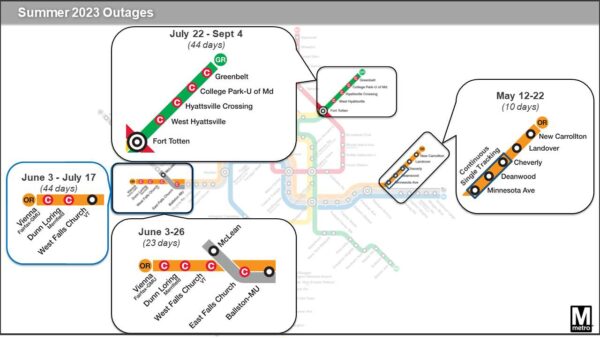
The reason for the shutdown, WMATA said, is to move forward on “five major projects to improve rail service reliability and modernize rail systems and facilities for customers.”
Those include completing a station roofing project on the Orange Line, replacing 30 miles of four-decade-old and failure-prone steel rails, installing fiber optic cables, modernizing information displays in the downtown stations, and elevator and escalator work at the Dupont station.
“Metro has used the lower ridership months in the summer to advance large maintenance and infrastructure projects with significant customer impacts,” the announcement notes. “By working closely with local jurisdictions, providing extensive free shuttle bus operations, and deploying comprehensive communications and outreach activities, Metro places significant effort to minimize the disruption to customers and the region.”
As for what the “free shuttle bus operations” could mean, county officials told ARLnow that hasn’t been figured out quite yet.
“WMATA will be scheduling coordination meetings with local jurisdictions to develop shuttle plans,” Arlington Dept. of Environmental Services spokeswoman Claudia Pors told ARLnow via email. “As of yet, we haven’t heard from WMATA on their timeline. I don’t expect it to be dissimilar from other temporary station shutdowns.”
Locals have dealt with similar shutdowns. In September, Metro shuttered much of the Yellow Line for bridge and tunnel repairs as well as continuing work on the new Potomac Yard station. The Yellow Line shutdown is expected to continue at least through May, with free shuttles provided for impacted riders.
When Metro instituted similar construction-related shutdowns in both 2020 and 2018, the agency also provided free shuttle bus service.
A major portion of the latest work will be focused on “replacing 40-year-old steel rail that has become significantly more susceptible to rail breaks than rail in any other part of the system.” Metro says that it has been tracking rail breaks and determined the stretch of track between Ballston and Vienna “to be a top priority” for replacement.
The Ballston Metro station averages about 3,500 daily entries on weekdays, which is more than the Clarendon, Courthouse, and Virginia Square stations but below Rosslyn, Crystal City, Pentagon City, and the Pentagon. East Falls Church averages about 1,600 entries.


